Ever wondered why engine oil is vital for your car’s performance? To a beginner, motor oil might just seem like a simple fluid you pour into your engine, but it’s far more essential than that. Engine oil plays a critical role in keeping your vehicle running smoothly, efficiently, and safely.
Motor oil lubricates your engine to prevent metal parts from tearing apart or fusing. It reduces friction and heat and keeps the engine clean, cooling it down and preventing it from seizing up. Without it, your engine would fail quickly, leading to costly repairs or replacements. Understanding the engine oil function involves grasping its key roles in lubrication, cooling, and cleaning.
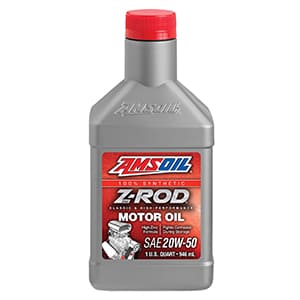
Dive into this beginner’s guide to not only gain insights into the components and types of motor oil but also to learn about viscosity, SAE grades, and classifications. Whether you’re a seasoned car enthusiast or just starting out, this guide will help you appreciate why investing in high-quality synthetic oil can be a game-changer for your engine’s longevity.
What is Engine Oil?
Engine oil isn’t just a liquid you pour into the engine and forget about. It’s a crucial component that keeps your car’s heart beating smoothly. Understanding its function can help you appreciate why regular oil changes and using the right type are vital for your vehicle’s health.
The Role of Engine Oil
Engine oil has several important jobs that keep the engine running effectively:
Lubrication: The primary function of engine oil is to lubricate the moving parts inside the engine. Without oil, these metal parts would rub against each other, creating friction that wears them down and could lead to engine failure.
Cooling: By reducing friction, engine oil helps to lessen the heat produced by the engine. It also carries away some of this heat to keep the engine temperature under control.
Cleaning: Engine oil helps to keep the engine clean by picking up dirt and debris. These contaminants are then trapped in the oil filter, preventing them from clogging up the engine.
Protection Against Corrosion: Engine oil contains additives that fight off rust and prevent corrosion, ensuring that your engine stays in good shape.
Sealing: Oil helps to seal tiny gaps in the engine, which improves efficiency and performance.
Energy Transfer: Especially in hydraulic systems, oil helps to transfer energy, making it crucial for optimal performance.
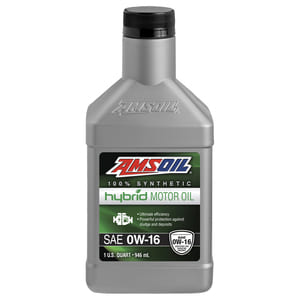
Components of Engine Oil
Engine oil is made up of two main parts:
Base Oils: These can be petroleum-based or synthetic and make up most of the oil. They allow the oil to flow and provide the main lubricating properties.
Additives: These are special chemicals added to improve the performance of the oil. Additives can provide extra protection against wear, prevent foaming, fight off rust, and more.
Understanding Viscosity
Viscosity refers to how thick or thin the oil is, which affects how well it flows through the engine. Here’s why it’s important:
Temperature Changes: Oil gets thinner when it’s hot and thicker when it’s cold. The right viscosity oil can handle these changes without losing its effectiveness.
Viscosity Index (VI): This is a measure of how much the oil’s thickness changes with temperature. A higher VI means better performance in a range of temperatures.
SAE Viscosity Grades
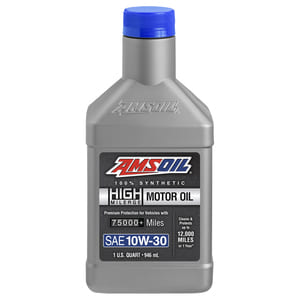
The Society of Automotive Engineers (SAE) has created a system to grade oils:
5W-30: The “5W” stands for how the oil performs in cold temperatures (“W” means winter). The lower the number, the better it performs in the cold. The “30” indicates how the oil performs at high temperatures.
Multi-Grade Oils: These oils provide good performance over a range of temperatures, making them versatile and effective all year round.
Understanding these aspects of engine oil can help you make better choices for your vehicle and ensure its longevity and performance are maintained. Regular maintenance and using the right oil will keep your engine in top shape, providing smooth and reliable driving experiences.
Core Functions of Engine Oil
Engine oil plays a vital role in keeping a car running smoothly and efficiently. Understanding how engine oil functions can help car enthusiasts appreciate its importance. Below are the core functions of engine oil that every car lover should know.
Lubrication and Wear Protection
One of the primary functions of engine oil is lubrication. Engine oil creates a thin, lubricating film between moving metal parts, preventing them from rubbing against each other. This oil film is crucial because metal-to-metal contact can cause significant wear and tear, ultimately leading to engine failure. Without proper lubrication, the metal components in an engine could fuse together or break apart. Regularly checking oil levels and changing oil helps maintain this essential protective barrier.
Cooling Properties of Engine Oil
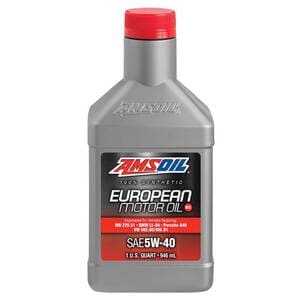
Engines generate a lot of heat due to the constant motion and friction of their components. Engine oil assists in dissipating this heat, acting as a secondary cooling system. As oil circulates through the engine, it absorbs heat from hot surfaces and distributes it away, helping to prevent overheating. This cooling function is critical because excessive heat can lead to engine parts expanding and seizing up, which would damage the engine beyond repair.
Cleaning and Contaminant Removal
Another important role of engine oil is to keep the engine clean. Engine oil picks up dirt, debris, and sludge that can accumulate within an engine. It suspends these contaminants and carries them to the oil filter, where they can be trapped and removed from the circulation. This cleaning action helps prevent harmful buildup that could impair engine performance and efficiency. Over time, if the oil is not changed regularly, it can become saturated with contaminants, reducing its ability to clean and protect the engine. Regular oil changes ensure that the oil stays effective in its cleaning function.
Understanding these core functions of engine oil—lubrication, cooling, and cleaning—shows why it is essential to maintain proper oil levels and stick to recommended oil change intervals. Proper engine oil care is instrumental in extending the life of an engine and ensuring peak performance.
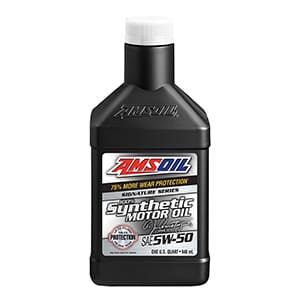
Synthetic vs. Conventional Engine Oil
Understanding the difference between synthetic and conventional engine oil is key for any car enthusiast. This section covers the benefits and molecular differences, focusing on how each type affects your engine’s performance and longevity.
Benefits of AMSOIL Synthetic Engine Oil
AMSOIL synthetic engine oils provide several standout benefits that can’t be ignored:
Superior Wear Protection: AMSOIL synthetic oils are designed to reduce wear and tear on your engine. This means your engine runs smoother and lasts longer.
Extreme Temperature Performance: Whether it’s freezing cold or scorching hot, AMSOIL synthetic oils remain stable. They don’t break down under high stress, ensuring your engine performs well under extreme conditions.
Enhanced Fuel Efficiency: Synthetic oils like AMSOIL can improve your car’s fuel economy. A well-lubricated engine uses less fuel, which also means fewer trips to the gas station.
Using AMSOIL synthetic motor oils can be one of the most effective ways to maintain engine oil function and extend engine life.
Molecular Differences: Impurities and Performance

Unlike conventional oils, synthetic oils are engineered with a specific molecular structure. Here’s why this matters:
Lack of Impurities: Conventional oils are refined from crude oil and can contain various impurities. These impurities can lead to sludge and deposits in your engine, reducing performance over time. Synthetic oils, however, are free from these impurities, leading to a cleaner engine.
Uniform Structure: Synthetic oils have a uniform molecular structure, which provides consistent performance. This consistency helps in reducing friction and heat, both of which are critical for engine health.
To sum up, while conventional oils can still get the job done, synthetic oils offer cleaner, more efficient, and longer-lasting performance. For those serious about maintaining the engine oil function of their vehicles, synthetic oil is often the better choice.
By understanding these differences, car enthusiasts can make better informed decisions for their engines, ensuring better performance and longer engine life.
Choosing the Right Engine Oil
Choosing the right engine oil can feel overwhelming with all the options available. But understanding what to look for can make a big difference in your vehicle’s performance and lifespan. Here’s a breakdown to help you navigate this important decision.
Understanding Oil Viscosity Ratings
Viscosity refers to how thick or thin a liquid is, and in the context of engine oil, it’s all about how easily the oil flows at different temperatures. You’ve probably seen oil grades like 5W-30 or 10W-40 and wondered what those numbers mean.
“W” Stands for Winter: The number before the “W” indicates how the oil performs in cold temperatures. The lower this number, the less viscous (thinner) the oil, making it easier to start the engine on cold mornings.
Second Number Indicates High-Temperature Viscosity: The number after the “W” represents the oil’s thickness at higher temperatures. Higher numbers mean thicker oil, which is better for maintaining a protective film over engine parts at high temperatures.
So, if you live in a cold climate and frequently face freezing temperatures, a 5W-30 oil would be better suited as it performs better in the cold compared to a 10W-40.

Key Considerations for Different Engine Types
Different engines have different needs when it comes to oil viscosity. Here’s what you should consider:
Manufacturer’s Recommendations: Always start with your vehicle’s owner’s manual. It will specify the recommended oil viscosity for your engine.
Newer Engines: Might benefit from a lower viscosity oil, which can help boost fuel efficiency.
Older Engines: Might require a higher viscosity oil to provide better lubrication and seal worn engine parts.
Motor Oils: Conventional vs. Synthetic
When choosing engine oil, it’s also important to decide between conventional and synthetic oils. Here’s a quick comparison:
Conventional Oils: Made from crude oil and often contain additives to enhance performance. They are generally cheaper but may require more frequent changes.
Synthetic Oils: Engineered to offer better performance and protection. They flow well at low temperatures and retain viscosity at high temperatures. Although more expensive upfront, they can extend the time between oil changes.
Additional Tips
Check the API Rating: Look for the American Petroleum Institute (API) rating on the oil’s label. It certifies that the oil meets the performance standards for your engine type.
Consider Driving Conditions: If you often drive in extreme conditions (hot weather, heavy towing, stop-and-go traffic), a synthetic oil might be a better choice.
Additives for Extra Protection: Some engine oils come with additives that offer additional protection against wear, corrosion, and foam.
Using the right engine oil keeps your engine running smoothly, minimizes friction, and ultimately extends the life of your vehicle. So, the next time you’re in the automotive aisle, you’ll know exactly what those numbers mean and can choose the right oil with confidence.
Maintaining Engine Oil Quality
Engine oil isn’t just a fluid; it’s the lifeblood of your engine. It keeps the engine running smoothly by lubricating parts, reducing friction, and even cooling the engine. But how do you know when the oil needs to be changed? Maintaining engine oil quality is crucial for keeping your car’s engine in top shape.
Signs that Your Engine Oil Needs Changing
Knowing when to change your engine oil can save you from costly repairs. Here are some common indicators to watch out for:
Color: Fresh oil is a golden brown color. If it’s dark or black, it’s time for a change.
Texture: Over time, oil can become gritty. Run a bit of the oil between your fingers; if it feels coarse, it’s time to change it.
Engine Performance: A drop in fuel efficiency or sluggish performance can indicate that the engine oil is no longer effective.
Dashboard Lights: Always pay attention to the check engine or oil change light on your dashboard.
Oil Smell: If you smell oil inside the car, it could mean there’s an oil leak or the oil is burning.
Engine Noise: Increased engine noise or knocking sounds can be a sign that the oil is failing to provide proper lubrication.
Exhaust Smoke: Excessive or dark smoke from the exhaust can indicate that the oil is dirty or low.
Maintaining engine oil quality might seem like a small task, but it’s fundamental to the health and performance of your vehicle. Always check the oil regularly and look for these signs to ensure your engine stays in peak condition.
Conclusion
Understanding engine oil function is crucial for any car enthusiast looking to maintain vehicle performance and longevity. Motor oil lubricates engine parts, minimizes friction, and keeps the engine clean. It also cools the engine, seals essential areas, dampens shocks, protects against corrosion, and even transfers energy in hydraulic systems.
Choosing the right oil, understanding viscosity, and adhering to SAE grades are fundamental. High-quality synthetic oils might cost more initially but provide lasting benefits, including extended drain intervals and better protection.
Investing time in learning about motor oil is an investment in your vehicle’s future. Reliable engine performance and reduced maintenance costs are tangible rewards for understanding these essential aspects.
Learn more about AMSOIL synthetic engine oils at bestengineoilintheworld.com.

